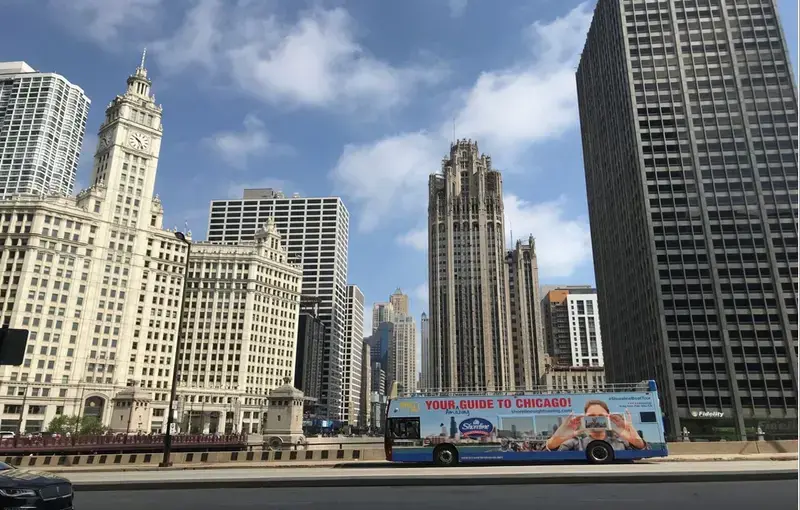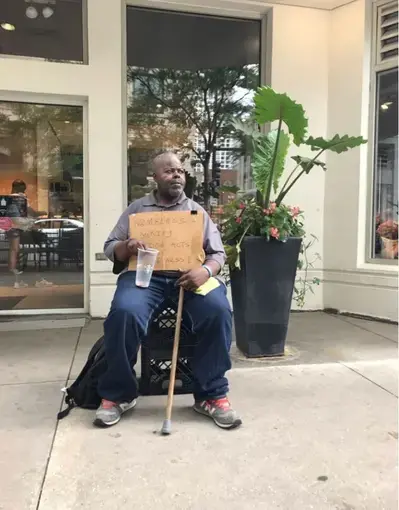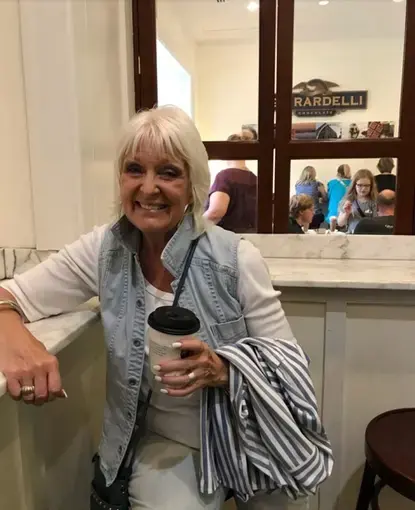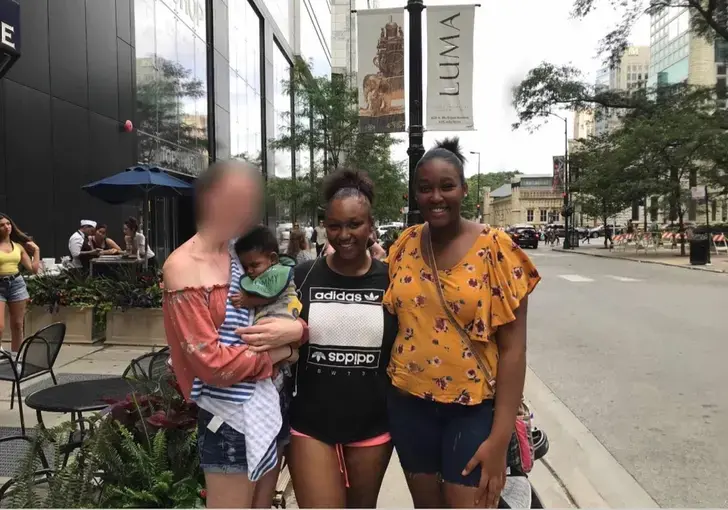Wealth Inequalities in the Windy City
By Kaitlyn Robson and Veronica Urbina Finelli
Students in the 2019 Genesis Academy Summer Institute in Chicago
The Windy City isn't as perfect as it seems. There are many inequalities that people ignore and try to hide. These inequalities include: racial segregation, lack of education, and wealth inequalities. The minimum wage in Chicago is $12.00 per hour meaning that full time workers will earn $1,920 per month. On average, an individual's monthly healthcare premium is $321. In order for people to have quality healthcare, they have to spend 17% of their income. Because minimum wage workers have to pay rent, buy food, and provide for their families, many minimum wage workers choose not to have health insurance as they have competing priorities to think about.

Image by Veronica Urbina Finelli. United States, 2019.
A man named Troy Smith who sits outside of a coffee shop holding a sign saying, "Homeless man looking for acts of kindness" said that he doesn't have a home or a lot of money. He talked about how he didn't to go to the emergency room in a while but when he does go he knows he won't be able to afford it and "they ain't gonna send anybody away." He had an optimistic view and he thought that "everyone should have healthcare whether they can afford it or not." He was eager to share his view as he has not been able to afford healthcare and knows many people that have had the same experience. He wanted everyone to know what he thinks the solution for this inequality is.

Image by Veronica Urbina Finelli. United States, 2019.
A retired teacher of an elementary school named Ruth Beckman who was walking to her house told us about the impact healthcare has on her community and how important it is to have health care. She understood that decision makers don't seem to acknowledge other people. She said, "We just have to think about the people who don't have it. There's got to be a way." Because of her retirement plan she was lucky enough that she doesn't have to pay for healthcare but she knows other people are not as "blessed." Ruth, similar to Troy, was also for universal healthcare.

Image by Kaitlyn Robson. United States, 2019.
When walking near the street, we interviewed two girls who talked about how the quality of healthcare. They both believed healthcare was "very expensive." One of the girls, Kiariah Lawrence, spoke about when she was really sick and she needed a specific medicine to cure her sickness. However, her insurance wouldn't cover this specific medicine, meaning that she would have had to pay $100. This was too expensive, meaning that she couldn't afford the medicine and was sick for a lot longer. After this incident her insurance was cut off for two months, meaning that she had no access to healthcare for a while. Ariana Lawrence, the other girl that we interviewed, said that "healthcare has a massive impact on my community." She said about sometimes in her life she couldn't afford healthcare and she felt that some people in her community have had the same situation. Both of them were hoping that soon healthcare will be for everyone, not just the privileged.

Image by Kaitlyn Robson. United States, 2019.
Day after day people struggle to find enough money to pay for the care that they need. After talking to a homeless man, a retired white woman, and two young black women who live in Chicago, we can conclude that a lot of people from different groups know someone who hasn't been able to afford healthcare, or have not been able to afford healthcare themselves, and it has a massive impact on people's lives. Having healthcare in America is really expensive that's why much of the population is not able to have insurance.